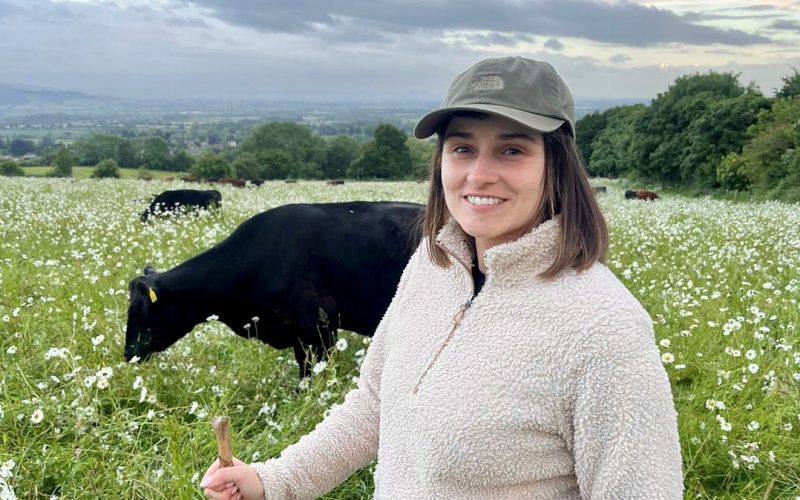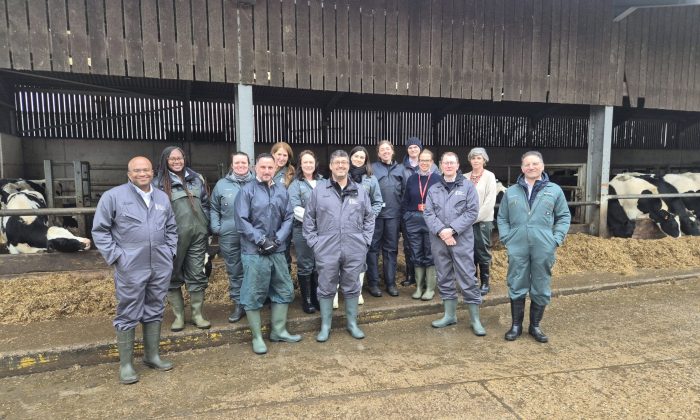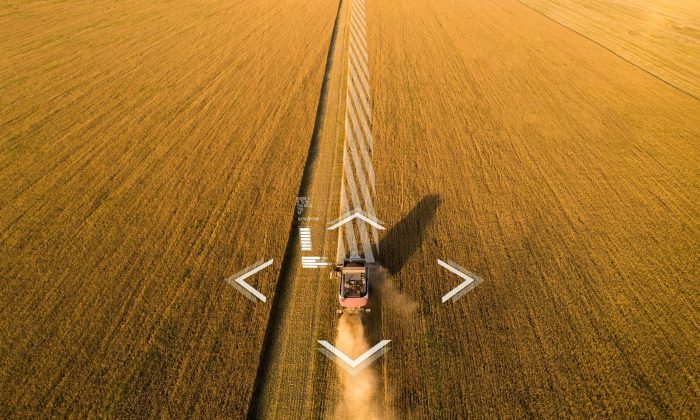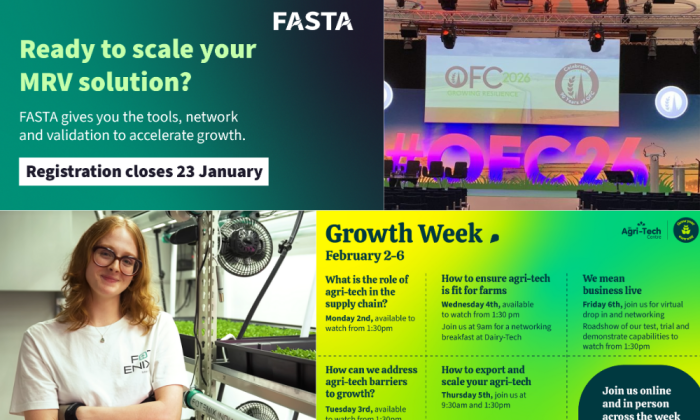The UK Agri-Tech Centre launched its first thought leadership report in July, since the merging of innovation powerhouses Agri-EPI Centre, CHAP and CIEL. The horizon-scanning piece on Livestock and Aquaculture presented me with food for thought on the need to shift innovation up a gear, to enable impactful change in these sectors.
Summarising the innovation priorities for the UK’s food-producing animal division over the next decade was a significant task, involving the consultation of over 150 supply chain stakeholders. The report identified priorities spanning the thematic areas of One Health, Sustainable Food Production, Resilient Food Systems and Intelligent Agriculture. Expectedly, mitigating Greenhouse Gas emissions (GHGe), enhancing disease and parasite control, alongside cultivating systems resilience were identified as key innovation areas across all food-producing animal sectors.
Having spent the first ten years of my career dedicated to progressing the health and welfare of UK livestock, it is valuable to understand where my efforts are best aligned over the next decade. The report highlights the need for developing enhanced disease prevention and treatment options – an area I am particularly passionate about, given the challenges of managing endemic disease and exotic disease incursion under projected climatic instability. A sentiment reinforced by an APHA notification of a new case of bluetongue virus (BTV3) in Norfolk.
There are many exciting innovation opportunities in preventative medicine, with the UK Agri-Tech Centre proactively driving research activity in this area to mitigate welfare issues and production losses. For example, the development of novel penside diagnostics to assess youngstock immunity, utilising AI and sensor technology to detect preclinical disease and remote behaviour monitoring. Importantly, all these innovations contribute to evidence-based management decisions enabling UK farmers to enhance livestock health and welfare.

“Dr. Bethan John and colleagues receiving the Royal Dairy Innovation Award in February 2024 from Her Royal Highness, The Princess Royal for the ImmunIGY Bovine IgG Innovate UK funded project. Led by Bimeda, the project is aimed at using tech to improve animal welfare and helping farmers reduce the risk of sickness in calves.”
In addition to this, I can see the opportunities in aggregating multiple complex data streams to deliver actionable insights for producers, with data flow capability beyond the farm gate. This outlook was also highlighted in a recent publication, in the context of creating common data repositories for key health parameters towards the quantification of disease-related emissions.
The UK livestock and aquaculture sector needs are cross-cutting and diverse. A scenario somewhat reflective of the fluid nature of our political affairs, climatic and disease challenges, domestic and export markets, consumer perceptions – the list goes on.
Such a dynamic situation may explain why agri-tech innovation funding is often available for reactive research to address immediate challenges but does not currently accommodate long-term whole farm-systems research, or encompass a proactive high-level strategy. I am hopeful that in the coming years, our shared ambitions to sustainably improve livestock and aquaculture will initiate discussions to develop more applicable R&D funding models.
As always with keystone publications, it is crucial that the report is evaluated regularly and not shelved as a one-time effort piece. I’m looking forward to working with colleagues across academia and industry to highlight new goals and themes which may emerge post-launch and where necessary, share challenges to addressing the priorities identified.
Given the rapid pace our sector evolves, we must not wait another ten years to consult our supply chain stakeholders on areas we need to research, improve and prioritise. Rather, we can leverage the UK Agri-Tech Centre report, and published works in the sector to drive innovation and guide future advancements, with a commitment to continually assess its relevance to current circumstances.
In the UK Agri-Tech Centre’s One Health Team, Dr Bethan John delivers programs which accelerates the development of resilient, sustainable systems that support global food security – for people, animals and ecosystems.



